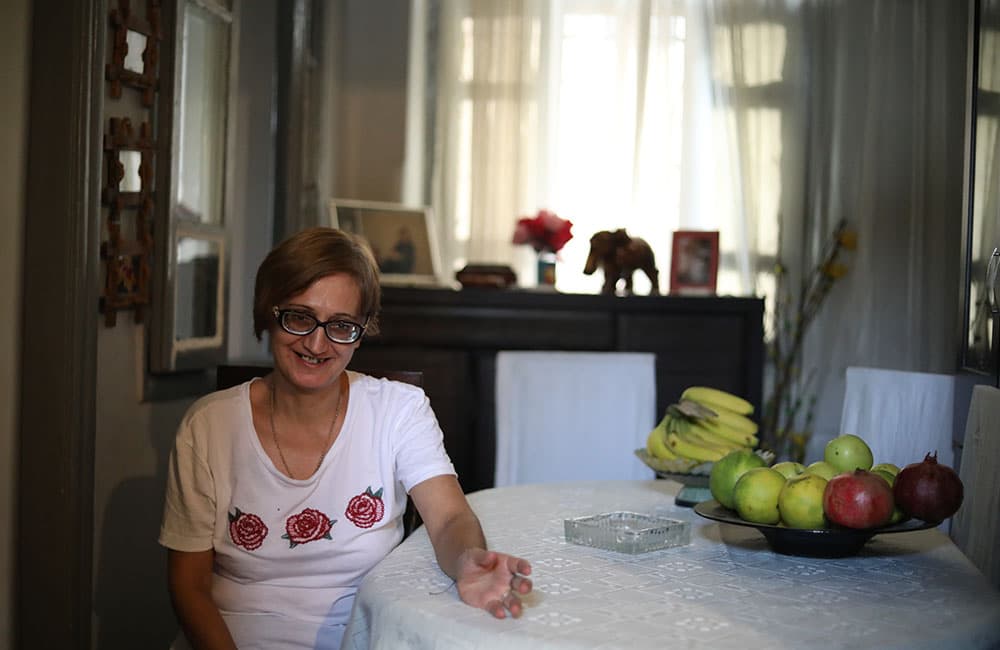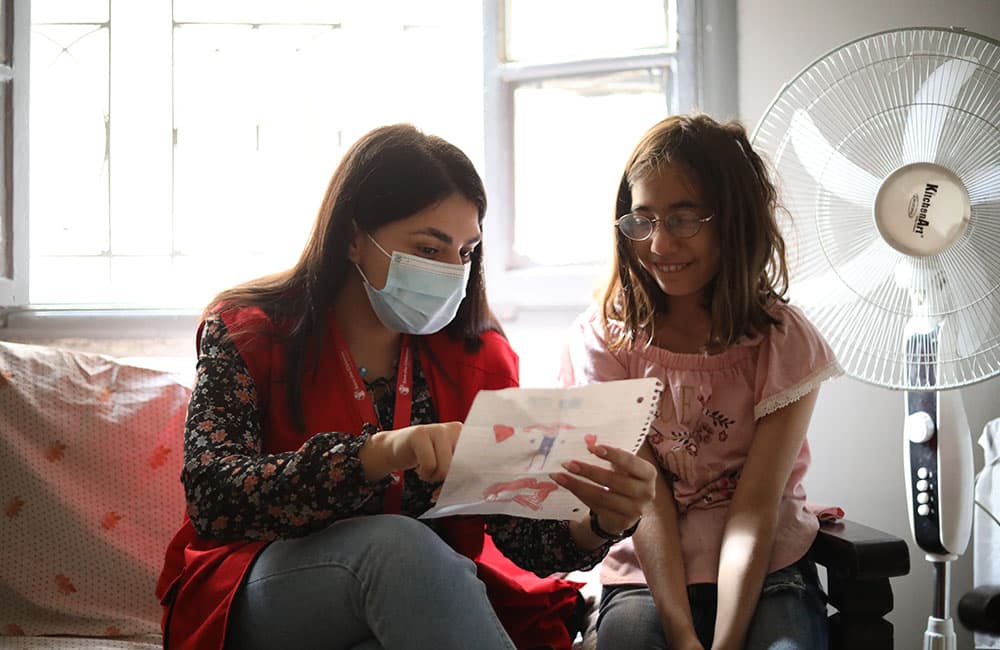How the children of Beirut are recovering after the blast
It’s been six months since the port explosion killed over 200 people, wounded thousands, and left much of the Lebanese capital destroyed. Children who had played happily in their streets and homes were devastated as homes came crashing down and streets were shuttered.
Thanks to our generous supporters, Save the Children were on the ground immediately providing shelter and setting up Child Friendly Spaces for children to play, learn and receive psychosocial support.
Six months on, we’re supporting families still overwhelmed by the explosion and coronavirus with cash support and one-on-one counselling.
A mother’s love
Even before the blast, Marie-Helene and her children were struggling. With schools closed because of coronavirus, her job was no longer needed. “Before coronavirus, I used to work in a school as a cleaner and get paid 8,000 Lebanese Pound (around AU$6.85) per hour. Now I work for four hours and get paid 8,000 Lebanese Pound.”
With the Lebanese currency also collapsing, hyper-inflation has meant Marie-Helene’s part-time job barely sustains the family. “I still find myself broke. Financially speaking, I’m penniless.”
“I’m working and I still have to take loans so I can buy things like vegetables. I can barely feed my family. Everything is absurdly expensive. If you want to go to the supermarket you need to at least carry two to three million LBP (approximately AU$2500) to buy stuff.”
After the explosion, things got worse. “That’s when the situation became intolerable,” she says. “Life became hell, you know.”
_1264451420.jpg.aspx)
Marie-Helene works much as she can to be able to afford food for her kids in Beirut.
Photo: Walid Khoury / Save the Children
Jad and Lama
When the port explosion happened the children were at home. 11-year-old Lama and 14-year old Jad have been scared ever since. “Until this day, my daughter gets scared. If she hears a sound from outside she gets terrified,” says Marie-Helene.
In the aftermath, Save the Children was there to give the family emergency cash assistance to repair their home. Ever since, we’ve been supporting Marie-Helene, Lama and Jad with cash assistance and one-on-one counselling.
Hanaa is a case worker that visits the children every week. “It involves one-to-one sessions with each child and the case worker, where the case worker can work closely with the children and give them a safe space to express more about their feelings individually by talking, drawing, and other activities. These are done by home visits or remotely so that the case worker can give the psychosocial support needed for the child,” explains Hanaa.

Case worker Hanaa discusses a drawing with Lama. Hanaa visits the kids every week to help them cope with the aftermath of the port explosion and coronavirus restrictions.
Photo: Walid Khoury / Save the Children
Thanks to our supporters
Without the generous help of Save the Children supporters, Marie-Helene says she doesn’t know where the family would be.